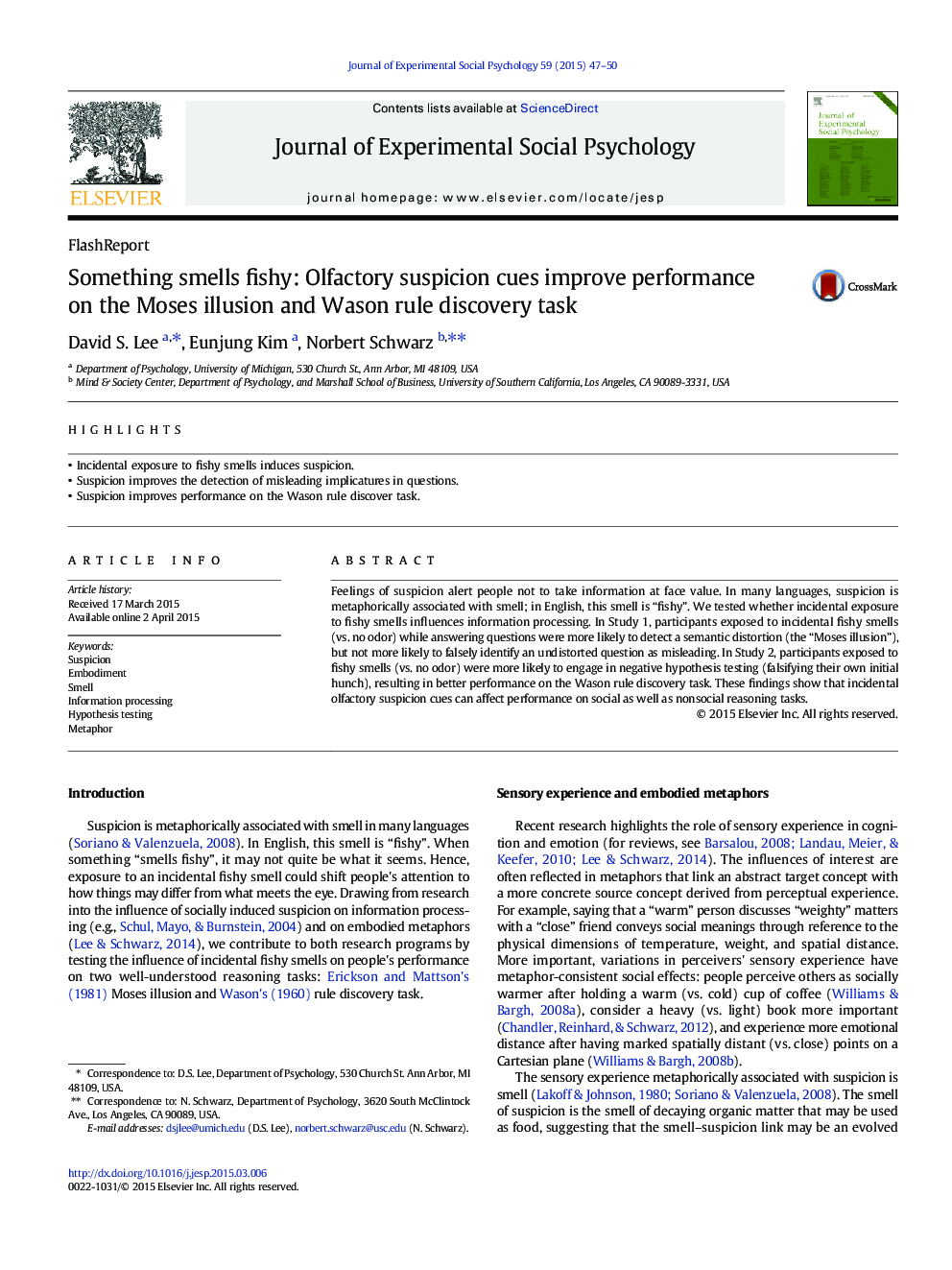| کد مقاله | کد نشریه | سال انتشار | مقاله انگلیسی | نسخه تمام متن |
|---|---|---|---|---|
| 947715 | 1475864 | 2015 | 4 صفحه PDF | دانلود رایگان |
• Incidental exposure to fishy smells induces suspicion.
• Suspicion improves the detection of misleading implicatures in questions.
• Suspicion improves performance on the Wason rule discover task.
Feelings of suspicion alert people not to take information at face value. In many languages, suspicion is metaphorically associated with smell; in English, this smell is “fishy”. We tested whether incidental exposure to fishy smells influences information processing. In Study 1, participants exposed to incidental fishy smells (vs. no odor) while answering questions were more likely to detect a semantic distortion (the “Moses illusion”), but not more likely to falsely identify an undistorted question as misleading. In Study 2, participants exposed to fishy smells (vs. no odor) were more likely to engage in negative hypothesis testing (falsifying their own initial hunch), resulting in better performance on the Wason rule discovery task. These findings show that incidental olfactory suspicion cues can affect performance on social as well as nonsocial reasoning tasks.
Journal: Journal of Experimental Social Psychology - Volume 59, July 2015, Pages 47–50
